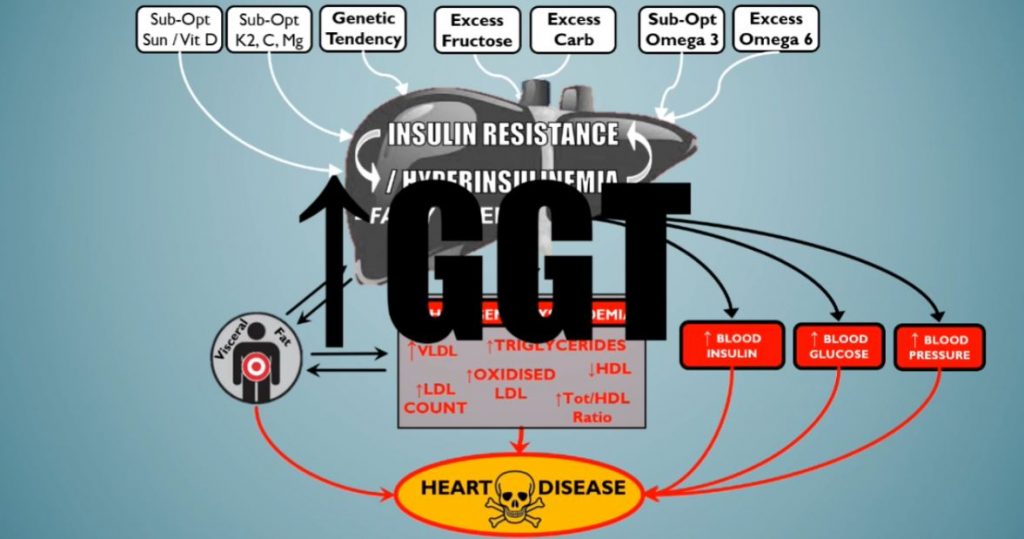Quick post today on interesting case of something that can drive up GGT. With potentially huge increases in liver-related complications later in life. It is based on an email conversation with a person who was struggling to deal with chronically elevated GGT. I’m guessing Dr. Guðmundur F. Jóhannsson will enjoy this one. And it may be important for many people out there who have elevated GGT. As far as I know there is no published literature around this. So this may be a first. Share with anyone who is smart enough to be measuring and monitoring their GGT number. Note also that although not a key factor in Joe’s case, a healthy #LCHF regime will hugely assist in improving SIBO for myriad people! Here’s a tip from Gabor Erdosi however: “LCHF with lots of plants is insufficient against SIBO/SIFO, you need to go as far as dairy free zero carb!”
The conversation verbatim below:
JOE (April 2017): I understand you had an issue with elevated GGT and did a lot of research around that problem. I have the same problem. Would you be so kind and share your insights with me? What are the risks if it stays high? How can I lower it? Did you manage to control it? How? Maybe you can point me to the key scientific papers that I should study. Many thanks for your help
IVOR (April 2017): Two things commonly drive up GGT – Alcohol and Carbohydrate excess. I and other cases had values over 100, whacked down promptly with low carbohydrate (I drink plenty of red wine – but this still ok with low carb regime). The following is a good resource, but they won’t mention low carb: http://www.healtheiron.com/ggt-science-library
As can be seen in the above link the risks are for cardiac disease, liver and other cancers, and all-cause mortality. I would aim to be below 30. Serum Ferritin synergistically links to GGT risk – again the way to lower this (and eliminate metabolic syndrome inflammation that drives it) is low carb healthy living. A good site for low carb: http://www.dietdoctor.com . Attached my metrics driven good by low carb living; excessive sugar and carb drives inflammation and the liver / physiology suffers….
… my GGT tumbled in approximately 8 weeks only – this biomarker should respond quickly (e.g. it is often used to verify if alcoholics are staying dry. Their GGT levels drop fairly promptly when off the drink. But due to unknown biological changes that years of drinking have caused in their liver and organs – their GGT rockets up when they drink again. Even a couple of days drinking will do it. The GGT goes up way faster than a non-alcoholic’s would when exposed to similar short bursts of alcohol. Amusing that Robert Lustig equates alcohol with sugar as a hepatic poison – he’s on the ball…!
There is a director of the Iron Disorders Institute who I traded emails with a couple of years ago; I gave her my hypothesis and she agreed 100% – said she had discovered same link of high carb to high GGT, and was actually writing a book on it; I must get back to her and see if she ever finished !
JOE (Aug 2017): Hi Ivor, I just wanted to close the loop on this: In my case, low carb and low A1c didn’t help much. While my TG and HDL improved, my GGT remained in the 150-250 region (where it has been for almost 20 years!). But what did help was the following: it turns out I must have had SIBO and SIFO for most of my life. After a cure with rifaximin and neomycin followed by nystatin, my GGT is now down to 40. Amazing! Bacterial Endotoxins and Mycotoxins must have poisoned my liver. Just wanted to let you know, because I didn’t find much written about SIBO/SIFO and GGT. Many thanks again for your help!
Best
Joe








